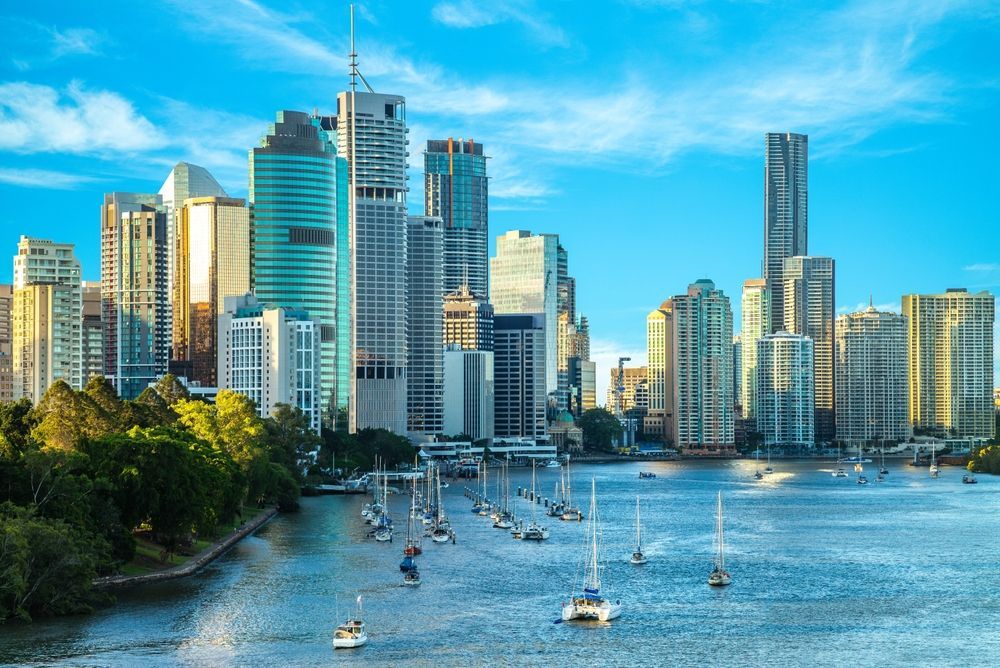Explore Emergency Medicine Physician Jobs in New Zealand
New Zealand has an exciting range of jobs for specialist emergency medicine physicians in varied locations across North and South Islands and in hospitals ranging in size from tertiary centres to small rural hospitals. New Zealand's emergency medicine physicians hail from across the world with a high percentage of international physicians. Here is some advice to help you find the right job.
New Zealand, like other countries of the Anglosphere, recognises Emergency Medicine as a distinct medical speciality and shares a postgraduate training program and college with Australia, the Australasian College for Emergency Medicine (ACEM). The ACEM is responsible for specialist training programs and standards.
Upon completing specialist training, physicians take examinations to become Fellows of the ACEM (FACEM). Specialist emergency medicine physicians are often referred to as "FACEMs". The FACEM is recognised as an equivalent qualification to comparable ones from the UK, Ireland, USA and Canada and is recognised by medical regulatory authorities throughout the world.
The speciality of emergency medicine, despite its popularity and dynamic image, is listed in Tier 1 of Immigration New Zealand's Green list indicating that it is a recognised field of skills shortages. This creates job opportunities for international specialist physicians who are eligible for vocational or provisional vocational registration with the Medical Council of New Zealand (MCNZ) with the added bonus of visas granting permanent residency in New Zealand to the physician and family.
Obtaining a job as a specialist emergency physician in New Zealand is relatively easy for those with the right credentials and opens the door to diverse career opportunities in clinical medicine, medical education and medical leadership positions.
The Scope of Practice of Specialist Emergency Medicine Physicians
The MCNZ defines emergency medicine as "a field of medical practice based on knowledge and skills required for the prevention, diagnosis and management of acute and urgent aspects of illness and injury affecting patients of all age groups with a full spectrum of undifferentiated physical, psychiatric and behavioural disorders. It further encompasses an understanding of the development of pre-hospital and in-hospital emergency medical systems, and the skills necessary for this development."
Most specialist emergency physicians are employed by Health New Zealand, the public healthcare provider which runs all the public hospitals across North and South Islands. Health New Zealand's emergency departments are operational 24/7 and provide medical care free of charge to all citizens and residents of New Zealand who are eligible for free healthcare. They vary by size and staffing levels as follows:
- tertiary hospitals in Auckland, Wellington, Hamilton, Christchurch and Dunedin staffed by FACEMs, senior medical officers, and resident medical officers (RMOs), a mixture of FACEM trainees and non trainees. These departments manage all levels of emergencies and are approved by the ACEM for basic and advanced FACEM training.
- secondary hospitals in the smaller cities and towns staffed by FACEMs and resident medical officers. Most are Level 2 EDs and are accredited for ACEM training at the basic and / or advanced level.
- rural hospitals with 20-100 beds staffed by senior medical officers and sometimes by FACEMs and RMOs. These emergency departments provide basic emergency patient management and resuscitation and can admit patients for observation or transfer them to secondary or tertiary hospitals. Some are accredited for the rural component of FACEM training.
New Zealand emergency departments (EDs) use the Australasian triage scale to assess patients and determine how urgent their treatment needs are. The scale has five triage categories, with category 1 being the most urgent and category 5 being the least urgent.
The role of the specialist emergency medicine physician requires a broad range of skills to perform a diverse set of duties including clinical practice, administration, and participation in the structured medical education of both medical students and RMOs. There are usually opportunities for clinical research, audit and service development and for the development of clinical leadership skills on the path to assume clinical director roles.
Employment Terms for Specialist Emergency Medicine Physicians
The employment terms of specialists are paid in accordance with the Collective Agreements which are negotiated by the Association of Salaried Medical Specialists (ASMS) with Health New Zealand and are uniform across all specialities. Basic salaries are determined by years of experience since eligibility for vocational registration and are supplemented by various allowances which are detailed in our article about medical salaries and remuneration packages in New Zealand.
Employment contracts are:
- permanent - no termination date and can be transferred between hospitals in the public sector
- fixed term - of limited term, usually 6-12 months to cover the leave of an incumbent physician
- locums - short term positions with the option of salaried or contractor status.
Ultimately salaries depend upon level of experience, work hours and additional responsibilities or allowances but a range of NZD 220K - 400K is usual.
International physicians are required to complete an initial supervision period of 6-18 months at the discretion of the professional regulator, the
Medical Council of New Zealand (MCNZ), under provisional vocational registration before being granted full vocational registration.
The 4 Step Process for Finding Emergency Medicine Physician Jobs in New Zealand
The job search process is simple and straightforward for physicians who are well prepared and consists of 4 sequential steps:
- Job Application: CV, Cover Letter and References (the three documents needed for a job search)
- Interview: remote interviews using zoom and teams
- Job Offer: negotiations over contractual terms and relocation packages
- Onboarding: MCNZ registration and Annual Practising Certificate, Medical Indemnity Insurance, Relocation
However before making job applications, there are 4 vital considerations to address, the most obvious being eligibility for MCNZ registration, without which no job is possible, followed by the eligibility for a visa which permits work, and finally the personal preferences of scope of practice and location.
2 Considerations for Emergency Medicine Specialist Job Applicants
1: Assess Your Eligibility for Vocational (Full or Provisional) Registration with the MCNZ
A formal assessment can be made only by application for assessment to the MCNZ which normally takes 3-4 months but sometimes less or more depending upon the degree of complexity of the application. However, physicians who have trained in countries with comparable healthcare systems to that of New Zealand, as defined by the MCNZ can be quite confident that their assessment will be positive.
3 Pathways to Vocational Registration as an Emergency Medicine Physician in New Zealand
 Button
ButtonThere are three pathways to apply for vocational registration as an emergency medicine physician with the MCNZ
VOC 1 - physicians who hold FACEM and general registration with the Australian Medical Board or Medical Council of New Zealand.
VOC 2 - physicians who hold FACEM but do not have general registration with the Australian Medical Board or Medical Council of New Zealand.
VOC 3 - international medical specialist emergency physicians have neither FACEM nor general registration with the Australian Medical Board or Medical Council of New Zealand.
It should be noted that the MCNZ does not have an approved list of specialist qualifications but considers each application assessing formal training and practice experience.
Each application form lists the information which must be included with the application.
This consists of the following:
- completed VOC 3 application form
- curriculum vitae
- passport copy
- copy of medical degree
- copy of specialist qualification
- copy of current medical practice registration / licence
- 3 reference forms
- an overview of specialist training programme
- evidence of participation in Continuing Medical Education (CME)
- EPIC Report of primary source verification of credentials
- IELTS Academic or OET result if required
Your application will go through initial checks with the MCNZ before being sent to the ACEM for assessment.
The Australasian College for Emergency Medicine (ACEM)
ButtonThe Australasian College for Emergency Medicine (ACEM) is a not-for-profit organisation responsible for training emergency physicians and advancement of professional standards in emergency medicine in Australia and Aotearoa New Zealand.
The FACEM Training Program is a five year program which may be undertaken on a full time or part time basis. It has 4 stages and 2 additional requirements:
- Traing Stage 1 (TS1) - 12 months FTE Adult or mixed ED
- Traing Stage 2 (TS2) - 12 months FTE in ED
- Traing Stage 3 (TS3) - 12 months FTE in ED
- Traing Stage 4 (TS4) - 6 months FTE in ED and 6 months FTE elective or non ED
- 6 months FTE in non ED
- 6 months FTE in ICU (adult or mixed) and / or anaesthetics
The FACEM Training Program must be delivered at ACEM accredited training sites in Australia and Aotearoa New Zealand.
ACEM Assessment of International Emergency Medicine Physicians
 Button
ButtonInternational emergency medicine physicians are assessed in comparison to the standards of the ACEM training (see below) by review of their formal training and post residency medical practice.
Emergency Medicine Specialists in New Zealand must complete 8 years of training and satisfy the requirements below:
- 3 years of general medical experience (this includes internship followed by PGY 2 and 3)
- 5 years of FACEM training, during which the trainee must complete:
- a minimum of 42 months in an emergency department, including 12 months non-major referral(the trainee may spend up to 12 months at an overseas site, subject to the approval of the ACEM)
- up to 18 months in a non-emergency department, including a minimum of 6 months of critical care or anaesthesia
- complete a research project
- complete the paediatric emergency requirement
- pass primary and Fellowship exams
- participate in the ACEM maintenance of professional standards programme.
Other things to consider include:
- does the country in which you trained and practised have a comparable health system to New Zealand? The MCNZ has listed over 30 countries which it has rated as having healthcare systems of a similar standard and preference is generally given to applicants who have trained and worked in these countries.
- how does the structure and length of your training programme compare with the New Zealand training programme for the vocational scope in which you are making your application?
- have you been awarded a certificate of completion (or similar) for your basic and advanced specialist training? For example, the Certificate of Completion of Training (CCT) from the United Kingdom.
- do you have recent clinical experience within the vocational scope in which you are making your application?
- is your experience across the full vocational scope in which you are making your application or is it limited to a subspecialty only?
Locum Tenens Registration for Emergency Medicine Physician Jobs

Emergency medicine physicians holding the qualifications listed below are eligible for locum tenens registration for up to 12 months
United Kingdom
- Fellowship of the College of Emergency Medicine and CCT or CCST
United States of America
- Certificate of the American Board of Emergency Medicine
- Certificate of the American Osteopathic Board of Emergency Medicine.
2: Select Locations to Practice Emergency Medicine
Once you have established eligibility for vocational registration (provisional or full) with the MCNZ, you can consider your preferences of location and scope of work. In some cases the supervision terms imposed by the MCNZ may restrict your options and you may need to focus on hospitals which can meet the supervision requirements. This usually means the hospitals with the larger EDs.
Both your current scope of practice and career goals are key to determining the best place to work. If you enjoy working in busy highly specialised hospitals, then tertiary hospitals are the right place to look for jobs. If you like the challenge of working in rural hospitals, there are many throughout both North and South Island. But for most emergency medicine physicians, the secondary care hospitals offer the bulk of practice opportunities and a large variety of clinical experience.
Emergency medicine physician jobs are available in tertiary hospitals located in Wellington, Auckland, Hamilton and Dunedin and in hospitals providing secondary level care in the smaller cities and towns across North and South Islands. Hospitals in rural areas often prefer physicians who have experience working in rural and remote medical practice.
New Zealand's two medical schools Otago and Auckland are located in Dunedin and Auckland respectively, the academic centres of medicine and base of all pre-clinical and most clinical teaching. Although clinical teaching is conducted throughout hospitals in New Zealand for undergraduates and for resident medical officers training for FACEM, emergency medicine physicians seeking an academic career are best to apply to the two major academic centres.
Aside from personal career goals, family wishes often determine the location of a job search and important considerations include availability and cost of housing, educational and work opportunities, leisure pursuits and transport networks.
Summary
- Emergency medicine physicians are fortunate in having a diverse range of employment options across New Zealand in the emergency departments of secondary and tertiary care hospitals where they can expect to work shifts and enjoy a generous amount of time off to pursue other interests.
- After determining eligibility for registration with the MCNZ, physicians can assess career, lifestyle and family goals to determine preferred locations for a job search.
Our recruitment consultants are on hand to offer expert advice and assistance and can add considerable value to your job search. Please register your CV and contact us. You can view currently advertised jobs and apply for them.
20 September 2024
Share this post on Social Media
Leave a Comment
SEARCH JOBS
Ready for a change? Whether you’re looking for higher compensation, greater autonomy, a better work-life balance, or just a change in scenery, we have job opportunities in wonderful locations across the world. Start your medical or dental job search today and embark on your next career move.
SIGN UP FOR JOB ALERTS
We believe everyone deserves to find their dream job. Be the first to hear about new practice opportunities in exciting locations across the world Simply sign up for job alerts in your chosen field, and we will email you when a new job in your specialty becomes available.



















